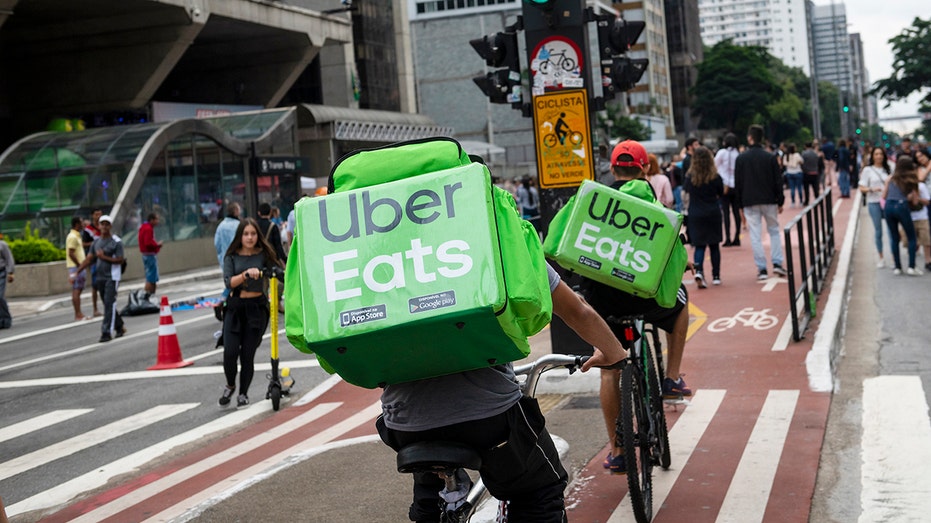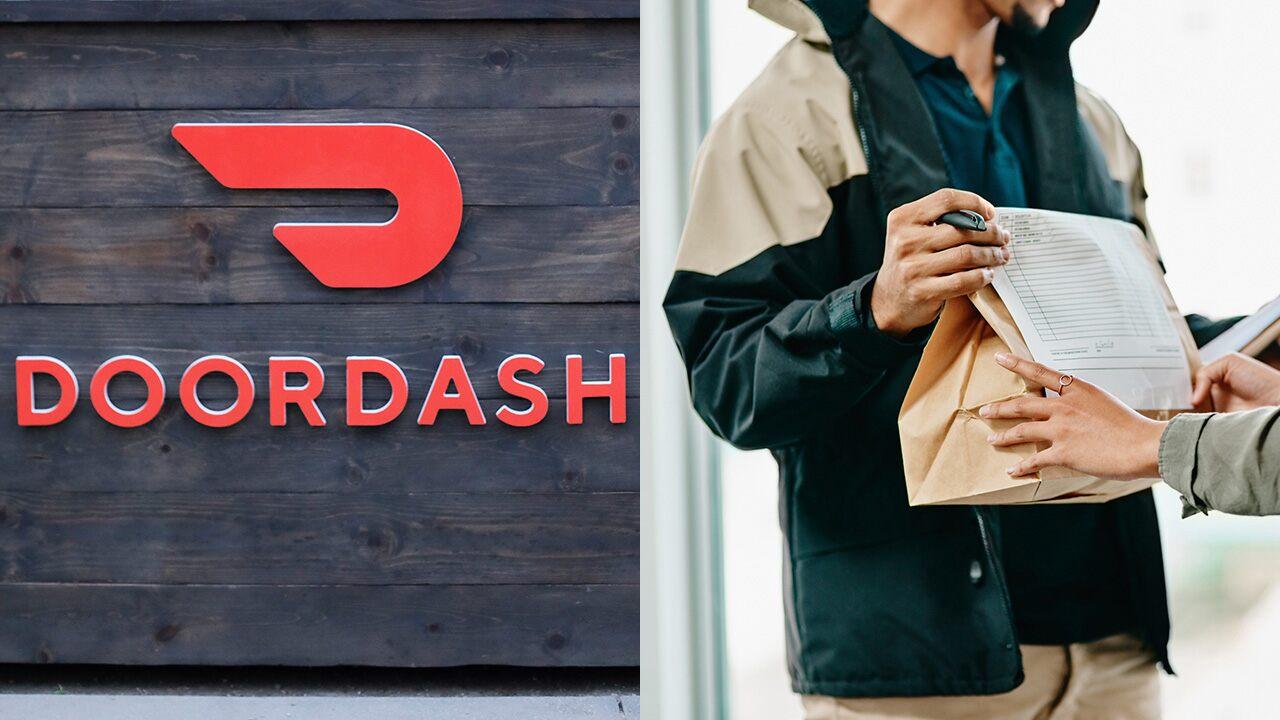Uber Eats waives food delivery fees
Coronavirus outbreak prompts Uber Eats, Grubhub and others to waive fees
Postmates, DoorDash, Uber Eats: The delivery apps eating away at your money
EatingNYC founder Alexa Matthews breaks down the hidden fees involved when ordering from food delivery apps like Postmates, Uber Eats and DoorDash.
UberEats is waiving delivery fees charged to more than 100,000 independent restaurants across the United States and Canada, the food delivery service announced Monday.
As bars and restaurants close throughout the country to contain the widespread novel coronavirus or switch to delivery-only, more third-party delivery services are doing their part to help them stay afloat.

Uber Eats waives delivery fees for restaurants struggling amid the coronavirus outbreak. (Uber Eats).
UberEats is giving restaurants the option to get paid daily on all orders instead of its typically weekly billing cycle.
"We know the success of every restaurant depends on customer demand. That’s why we’re working urgently to drive orders towards independent restaurants on Eats, to help make up for the significant slowdown of in-restaurant dining," Janelle Sallenave, head of Uber Eats, wrote Monday in a blog post.
The service is ramping up its contactless delivery efforts so customers can get their food delivered on their doorstep, and the company announced it would deliver 300,000 free meals to health care workers and first responders.
GRUBHUB WAIVES COMMISSION FEES FOR RESTAURANTS TEMPORARILY
The Centers for Disease Control and Prevention advised against gatherings of 50 people or more in public for the next eight weeks, which has led to the shutdown on restaurants and bars in the New York Metropolitan Area.
Grubhub announced Friday it would suspend collecting up to $100 million in commissions from independent restaurants throughout the country as health officials urge consumers to socially distance themselves.
| Ticker | Security | Last | Change | Change % |
|---|---|---|---|---|
| UBER | UBER TECHNOLOGIES INC. | 74.77 | -0.44 | -0.59% |
| GRUB | NO DATA AVAILABLE | - | - | - |
Restaurants on third-party delivery services like Grubhub, the parent of food-delivery app Seamless, can pay up to 30 percent in commission fees making it difficult for some mom-and-pop-owned shops to make a profit even without the coronavirus pandemic plaguing sales. Because fewer people are ordering food, that commission could have weighed even more heavily on a restaurant’s bottom line.
CLICK HERE TO READ MORE ON FOX BUSINESS




















